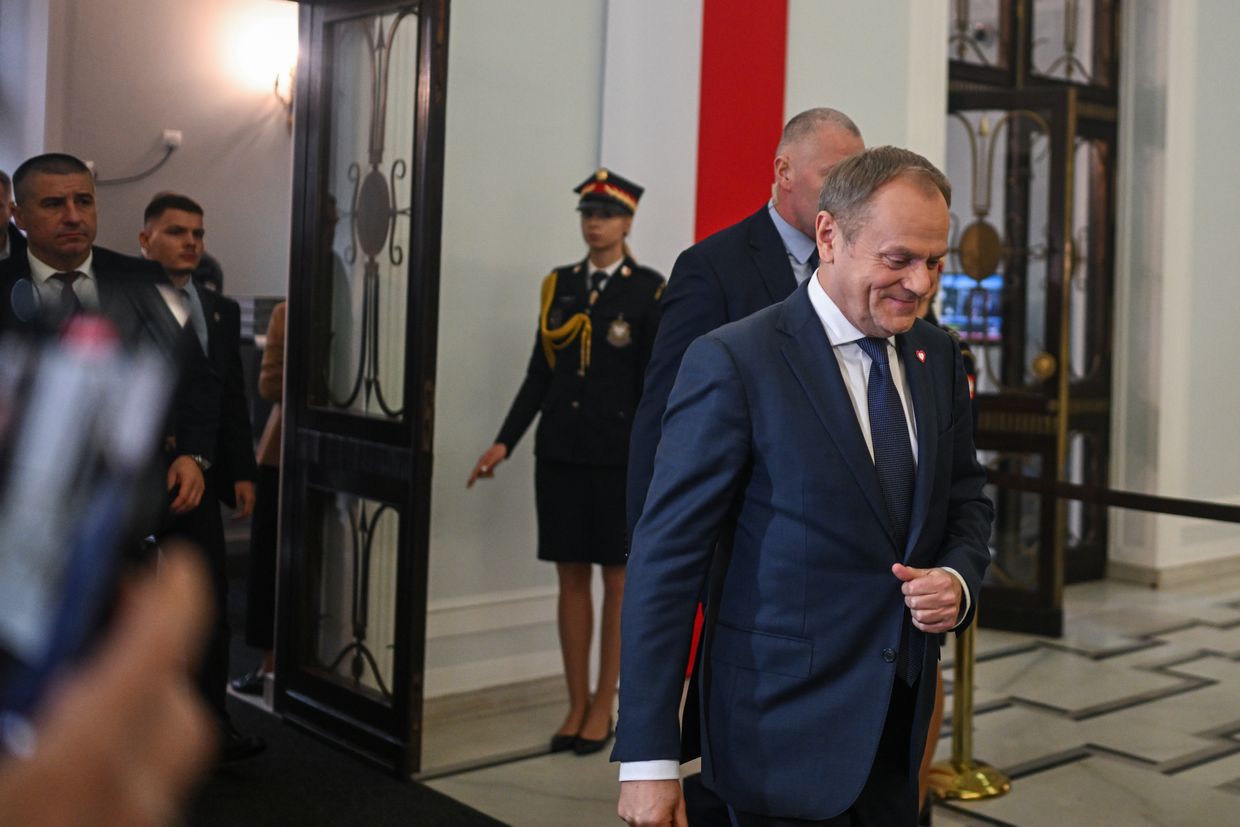Agriculture Ministry 'strongly condemns deliberate destruction of Ukrainian grain by Polish protesters'

Ukraine's Agriculture Ministry "strongly condemned the deliberate destruction of Ukrainian grain by Polish protesters on the Ukrainian-Polish border" after photos circulated on social media showing Polish protestors spilling Ukrainian grain from trucks at the border.
The photos, which appeared on Feb. 11, caused indignation in Ukraine and a warning from Polish Prime Minister Donald Tusk that the dispute could further escalate tensions between the two countries.
"We understand when Polish farmers defend their interests in a civilized way. But this case of destruction of Ukrainian wheat has nothing to do with peaceful protests either from a legal or a moral point of view," the Agriculture Ministry said on Feb. 12.
Polish Agriculture Minister Czeslaw Siekierski released a statement in which apologized "on behalf of Polish farmers" for "such an act of desperation."
"Farmers have not controlled their emotions, but it should be remembered that they are in a very difficult economic situation," Siekierski said.
Polish media outlet Tvn24 reported on Feb. 12 that in reaction to the grain spillage, the Chelm District Prosecutor's Office opened an investigation concerning the destruction of property and breaking customs security, crimes which carry a punishment of up to five years in prison.
Poland has been one of Ukraine's staunchest allies since the start of the full-scale Russian invasion, but the relations began to sour somewhat last year over agricultural trade disputes.
Both countries are major agricultural producers. When the EU lifted restrictions and tariffs on Ukrainian goods in 2022, farmers in Poland and neighboring countries complained that cheaper imports from Ukraine created an unfair advantage.
The previous Polish government of the Law and Justice (PiS) party instituted an import ban on Ukrainian grain and several related products, first as part of an EU-instituted measure between May 2023 and September 2023 and then unilaterally. Tusk's government, which has been in power since last December, said it does not intend to lift the ban.
Previously, Polish truckers and farmers blocked four crossings between November 2023 and January 2024 to protest Ukrainian imports and the liberalization of permits for Ukrainian truckers.

Polish farmers agreed to suspend their initial blockade on Jan. 6 after Agriculture Minister Czeslaw Siekierski agreed to meet some of their demands, including corn subsidies, increasing liquidity loans, and keeping agricultural tax at the 2023 level.
Truckers lifted their blockade not long after that.
A new wave of farmers' protests erupted on Jan. 24, with demonstrators blocking roads across Poland.
The Solidarity trade union announced on Feb. 1 that it would block roads and border crossings with Ukraine between Feb. 9 and March 10 because of the supposed "passivity of the Polish authorities" and the EU in solving the imports issue.
Three crossings have been blocked since Feb. 9, and two others since Feb. 12.













